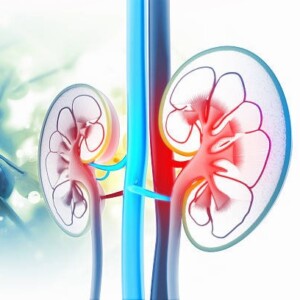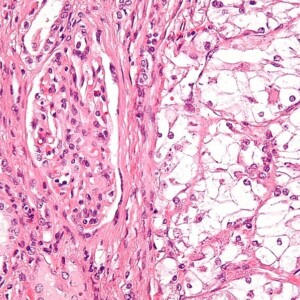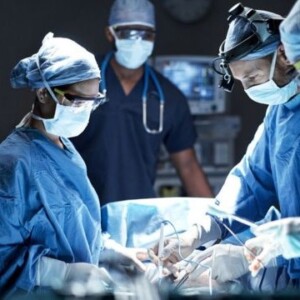



Specialization:
Member of numerous national and international scientific organizations, including:
Sebastian Wille is a German urologist, university professor and deputy director of the Clinic and Polyclinic of Urology at the University Hospital of Cologne.
Specialization:
Scientific activity:
Membership in professional organizations:
Head physician of the Department of Hematology and Oncology at the Helios Clinic named after Emil von Behring.
Specialization:
Education:
Professional experience:
Chief Physician at Helios Hospital Bad Saarow.
Specialization:
Education:
Additional qualifications:
Professional experience:
Memberships:








Check the cost of treatment and get 20 000 € from international foundation
Get financial help up to 20 000 € for your child treatment
Medical consultant
Turkish oncologist will provide an individual chemotherapy program.
Israeli oncologist will provide an individual chemotherapy program.
Spanish oncologist will provide an individual chemotherapy program.
German oncologist will prepare an individual chemotherapy program.
Polish oncologist will prepare an individual chemotherapy program.
Italian oncologist will prepare an individual chemotherapy program.
Turkish radiologist will prepare a personalized radiation therapy program
Israeli radiologist will draw up an individual radiation therapy program.
German radiologist will draw up an individual radiation therapy program.
Spanish radiologist will draw up an individual radiation therapy program.
Polish radiologist will prepare an individual radiation therapy program.
Italian radiologist will draw up an individual radiation therapy program.
Turkish plastic surgeon will make an individual operation program.
German plastic surgeon will make an individual operation program.
Israeli plastic surgeon will make an individual operation program.
Italian plastic surgeon will make an individual operation program.
Polish plastic surgeon will make an individual operation program.
Spanish plastic surgeon will make an individual operation program.
Turkish orthopedic surgeon will make an individual operation program.
Israeli orthopedic surgeon will make an individual operation program.
German orthopedic surgeon will make an individual operation program.
Italian orthopedic surgeon will make an individual operation program.
Lithuanian orthopedic surgeon will make an individual operation program.
Polish orthopedic surgeon will make an individual operation program.
Ukrainian orthopedic surgeon will make an individual operation program.
Spanish orthopedic surgeon will make an individual operation program.
Turkish neurosurgeon will study the medical situation and give recommendations for treatment.
Israeli neurosurgeon will study the medical situation and give recommendations for treatment.
German neurosurgeon will study the medical situation and give recommendations for treatment.
Italian neurosurgeon will study the medical situation and give recommendations for treatment.
Lithuanian neurosurgeon will study the medical situation and give recommendations for treatment.
Spanish neurosurgeon will study the medical situation and give recommendations for treatment.
Ukrainian neurosurgeon will study the medical situation and give recommendations for treatment.
Turksih doctor will answer your questions
Israeli doctor will answer your questions
German doctor will answer your questions
Italian doctor will answer your questions
Polish doctor will answer your questions
Ukrainian doctor will answer your questions
Spanish doctor will answer your questions
Israeli orthopedic surgeon prepare an individual surgical plan and recomendations
Turkish orthopedic surgeon prepare an individual surgical plan and recomendations
German orthopedic surgeon prepare an individual surgical plan and recomendations
Italian orthopedic surgeon prepare an individual surgical plan and recomendations
Lithuanian orthopedic surgeon prepare an individual surgical plan and recomendations
Polish orthopedic surgeon prepare an individual surgical plan and recomendations
Spanish orthopedic surgeon prepare an individual surgical plan and recomendations
Lithuanian doctor will answer your questions
After examining your situation, doctor will make an individual price offer.
Doctor-consultant will answer all your questions about the cost of treatment, the choice of a doctor and fully organize treatment abroad.

we will contact you within 15 minutes
 Treatment for kidney cancer in Germany is an opportunity for many people to get a chance for a full recovery and return to everyday life. In recent years, there has been an upward trend in the disease in Europe and the USA. According to statistics from the World Health Organization, more than 430,000 cases of kidney cancer are diagnosed annually, with deaths occurring in almost 180,000 people. Treatment of kidney cancer in Germany is recognized as one of the most successful in global oncology. In recent years, German specialists have developed many innovative treatment regimens in this area. Doctors competently combine classical and innovative treatment methods, thanks to which they record high results and a good survival prognosis in Germany. That is why patients from Eastern Europe, Central Asia, and Balkan countries choose kidney cancer treatment in Germany.
Treatment for kidney cancer in Germany is an opportunity for many people to get a chance for a full recovery and return to everyday life. In recent years, there has been an upward trend in the disease in Europe and the USA. According to statistics from the World Health Organization, more than 430,000 cases of kidney cancer are diagnosed annually, with deaths occurring in almost 180,000 people. Treatment of kidney cancer in Germany is recognized as one of the most successful in global oncology. In recent years, German specialists have developed many innovative treatment regimens in this area. Doctors competently combine classical and innovative treatment methods, thanks to which they record high results and a good survival prognosis in Germany. That is why patients from Eastern Europe, Central Asia, and Balkan countries choose kidney cancer treatment in Germany.
Germany can be considered the best place for the treatment of all cancer diseases:
According to reviews from patients who were treated for kidney cancer in Germany, this is one of the best options for people with this diagnosis.
 Kidney cancer occurs in the mucous membrane of the tubules or other parts of the organ. About 90% of cases are kidney adenocarcinoma (renal cell carcinoma). Its danger lies in its rapid spread throughout the body through the lymphatic system and bloodstream. If not treated on time, metastases will quickly reach distant structures, worsening the survival prognosis.
Kidney cancer occurs in the mucous membrane of the tubules or other parts of the organ. About 90% of cases are kidney adenocarcinoma (renal cell carcinoma). Its danger lies in its rapid spread throughout the body through the lymphatic system and bloodstream. If not treated on time, metastases will quickly reach distant structures, worsening the survival prognosis.
Kidney cancer may not manifest itself for a long time until the tumor reaches a large size and blood appears in the urine. That is why this type of cancer is often detected already at stage 4. Symptoms that should alert you:
Scientists have not fully identified why kidney carcinoma occurs. Among the most likely causes, doctors name smoking, addiction to diuretics, abuse of meat products, age over 70 years, diabetes, and genetic predisposition.
German oncologists prescribe examinations using modern technologies to develop an effective treatment plan. Diagnostics may include:
An innovative technology that significantly increases the effectiveness of therapy is a genetic diagnosis of a tumor. The genetic laboratory CeGaT in Tübingen offers genetic profiling of cancer tissues. These tests help to create a personalized immunotherapy regimen, and also, when hereditary risks are identified, to take timely preventive measures for the patient’s loved ones. Consultation with the world’s leading geneticists is also available here.
Advanced equipment allows doctors to make a diagnosis with 100% accuracy, which is important for drawing up the optimal treatment plan for kidney cancer in Germany.
 Oncologists in Germany offer patients comprehensive treatment for kidney cancer, including current therapy methods with proven effectiveness.
Oncologists in Germany offer patients comprehensive treatment for kidney cancer, including current therapy methods with proven effectiveness.
The treatment regimen for kidney cancer in Germany is being developed by a group of different specialists.
Key technologies:
Oncologists in Germany prescribe radiation and chemotherapy mainly for multiple metastases in the last stages of the disease. German clinics are equipped with the latest generation of linear accelerators, which allow high-precision irradiation of cancer lesions without affecting healthy tissue. However, it is worth noting that these methods for the treatment of kidney cancer in Germany are not the main ones.
According to summary data from German clinics, renal function after surgery decreases by 26%, radiofrequency ablation – by 13%, and cryotherapy – by 6%.
German medical centers are among the world leaders in the number of scientific research and developments in oncology. Here, they are the first to introduce new programs for the treatment of kidney cancer, including stage 4. They show their success and give a good prognosis for survival.
The Immuno-Oncology Center Cologne IOZK offers patients unique, effective technologies for treating cancer using immunotherapy, which are not available in the patients’ home countries:
The West German Proton Therapy Center in Essen (WPE) is one of the few medical institutions that offers a gentle alternative to radiation therapy. It is especially indicated for multiple lesions and is well tolerated by patients.
In university centers in Germany, the immunology of kidney tumors is being studied in detail to develop fundamentally new treatment regimens that have no analogs in the world. One of the promising areas in immunotherapy for kidney cancer that does not respond to traditional treatment is allogeneic (donor) stem cell transplantation.
 The price for kidney cancer treatment in Germany is based on the G-DRG (German Diagnosis Related Groups) system and is based on the tariffs of the Ministry of Health.
The price for kidney cancer treatment in Germany is based on the G-DRG (German Diagnosis Related Groups) system and is based on the tariffs of the Ministry of Health.
The price of kidney cancer treatment in Germany depends on various parameters:
Approximate prices for basic procedures:
More detailed advice on prices for kidney cancer treatment in Germany will be provided by Experts Medical coordinating doctors.
In Germany, kidney cancer treatment is successfully carried out in more than 70 hospitals. Based on hospital data and patient reviews, Experts Medical coordinators identified the best medical centers:
The Experts Medical website presents leading medical centers in Germany with patient treatment reviews there. Complete information about the features of kidney cancer treatment in specific clinics in Germany can be obtained from Experts Medical doctors.
 Patients trust the experienced and reliable company Experts Medical to organize kidney cancer treatment in Germany. It cooperates with the best medical centers in the world. Coordinating doctors will provide free advice on all issues of kidney cancer treatment in Germany and help you select a leading specialist.
Patients trust the experienced and reliable company Experts Medical to organize kidney cancer treatment in Germany. It cooperates with the best medical centers in the world. Coordinating doctors will provide free advice on all issues of kidney cancer treatment in Germany and help you select a leading specialist.
The company’s experts will prepare medical documents and send them to the clinic for examination by the doctor and drawing up a preliminary treatment regimen. If necessary, the patient will be given a preliminary online consultation. It is also possible to arrange a second medical opinion from leading oncologists, book air tickets, and make hotel reservations.
With the support of Experts Medical, the treatment of kidney cancer in Germany for the patient will be carried out according to the highest international standards.